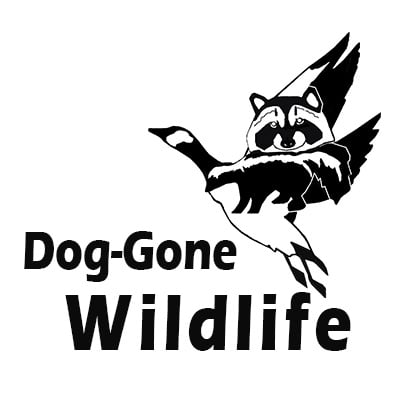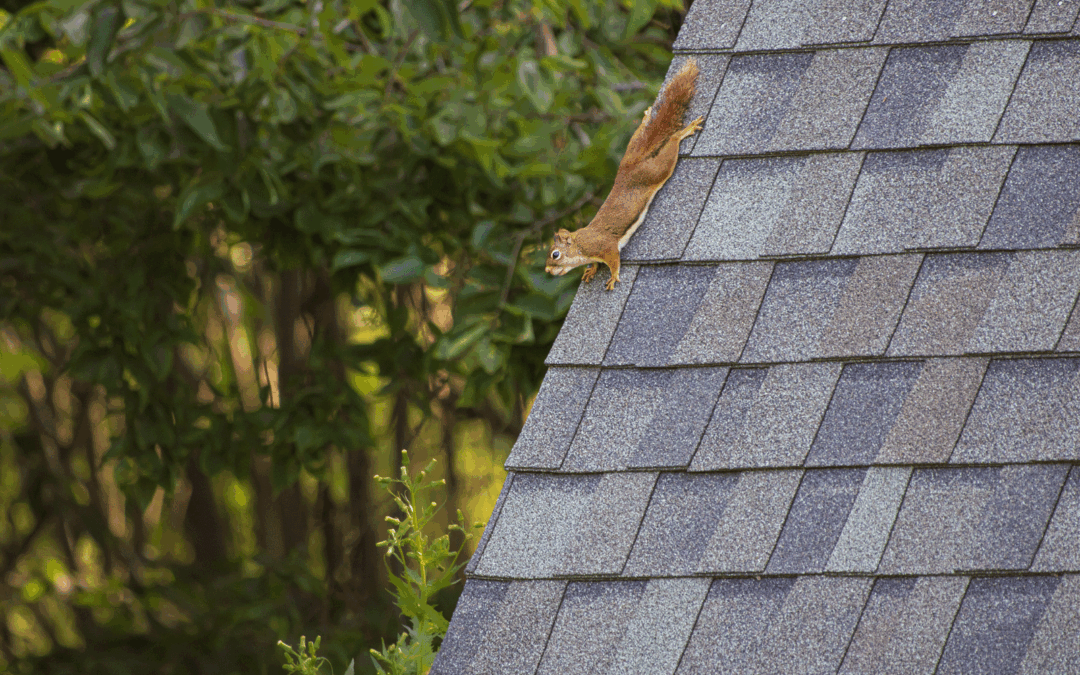Common Signs of Squirrels in Your Attic
Squirrels are most active during the early morning and late afternoon, so if you’re hearing strange noises during those hours, that’s a strong clue. Here are some of the most common indicators:
Scratching or Scampering Sounds
Squirrels are agile climbers and fast movers. You’ll often hear them running, scratching, or gnawing in the ceiling or walls. These sounds are typically loudest at dawn and dusk.
Chewed Entry Points
Look for damage near rooflines, soffits, vents, or eaves. Squirrels can chew through wood, shingles, and even metal to create an entryway into your attic.
Droppings and Nesting Materials
Squirrel droppings are small, dark, and oblong, often found near nesting sites. You might also find shredded insulation, leaves, or twigs which are all evidence of nest-building.
Foul Odors
If squirrels have been in your attic for some time, the smell of urine and droppings can accumulate. In some cases, a dead squirrel may go unnoticed, leading to a particularly strong odor.
Damage to Insulation or Wiring
Visible damage in your attic, such as displaced insulation or chewed wires, is a sure sign that wildlife has been active in the space.
The Risks of a Squirrel Infestation
You might think a few squirrels are harmless but left unchecked, they can create expensive and dangerous problems in your home.
Fire Hazards
One of the most serious threats comes from squirrels chewing on electrical wiring. Their teeth never stop growing, so they gnaw constantly, including on live wires. This can lead to short circuits or even house fires.
Damaged Insulation and Structure
Squirrels will tear up insulation to build nests, reducing your home’s energy efficiency. They can also damage drywall, wooden beams, and vent covers in the process.
Contamination
Squirrel urine and droppings can contaminate your insulation and attic surfaces, leading to unpleasant odors and potential health risks from mold, bacteria, or parasites.
Repeated Infestations
Once squirrels find your attic inviting, they’re likely to return, or even invite others. Females especially seek out safe, warm spaces to give birth to their young.
What to Do if You Suspect Squirrels in Your Attic
If you think squirrels have invaded your attic, it’s important to act quickly but also cautiously.
Don’t Try DIY Removal
Squirrels can become aggressive when cornered, especially if they’re protecting a nest. Trapping them improperly can also separate mothers from babies or result in legal issues, as certain wildlife laws protect some species.
Contact a Wildlife Removal Professional
At Dog Gone Wildlife, we provide safe, humane, and effective squirrel removal. Our team will:
- Inspect your home and identify entry points
- Humanely remove any squirrels (including young, if present)
- Seal up access areas to prevent future intrusions
- Offer guidance on cleaning and repairing damaged areas
Prevent Future Intrusions
After removal, we recommend trimming nearby tree limbs, installing vent guards, and regularly inspecting your roofline to discourage future nesting.
Let Dog Gone Wildlife Help You Reclaim Your Attic
Squirrels may be a part of Ohio’s natural landscape, but they don’t belong in your home. If you’ve noticed the telltale signs of a squirrel infestation, don’t wait for the damage to get worse.
Dog Gone Wildlife proudly serves homeowners in Columbus, Powell, Westerville, Upper Arlington, and surrounding areas. We’re available 24/7 to help with your wildlife emergencies, because when it comes to protecting your home, there’s no time to waste.
Contact us today for a professional inspection and take the first step toward a squirrel-free home!

